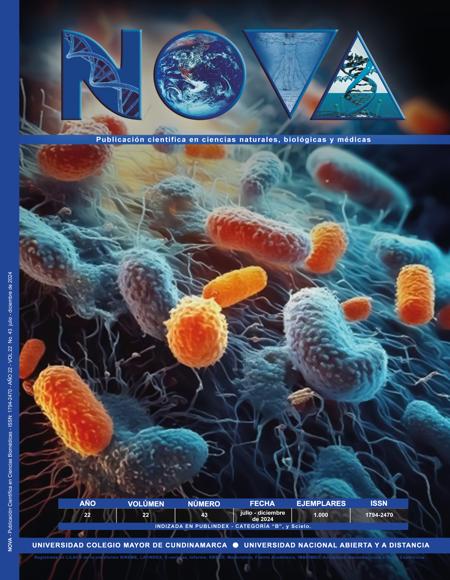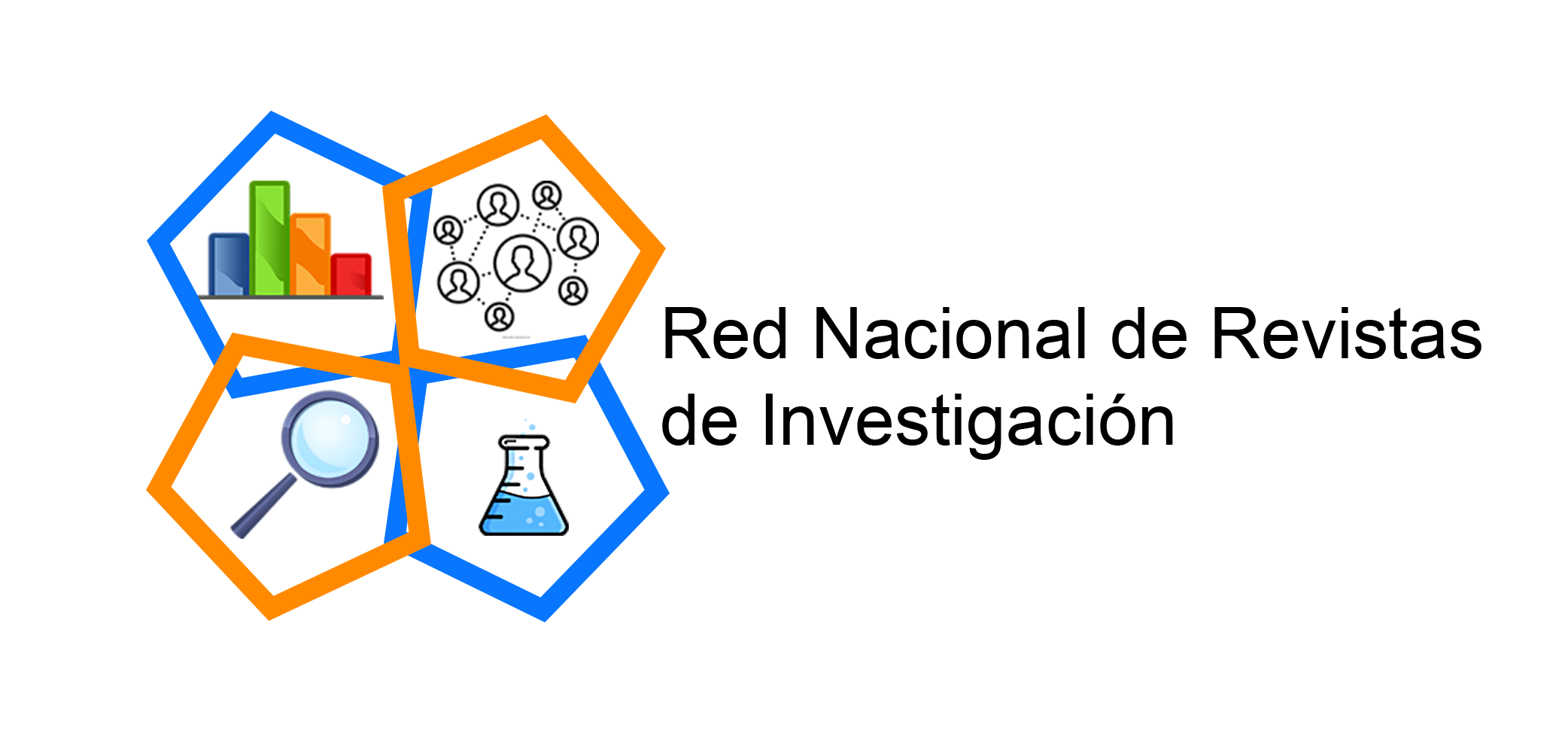Edición genética e inteligencia artificial: Desafíos Éticos Frente a los Avances Biotecnológicos
Edición genética e inteligencia artificial: Desafíos Éticos Frente a los Avances Biotecnológicos

This work is licensed under a Creative Commons Attribution-NonCommercial-ShareAlike 4.0 International License.
Show authors biography
Resumen
Objetivo. Analizar los dilemas éticos más relevantes que surgen a raíz de los avances biotecnológicos, enfocándose en cuestiones como la equidad en el acceso a las tecnologías,los riesgos para la salud pública y la protección de los derechos humanos. Metodología.Se adoptó un enfoque cualitativo basado en una revisión exhaustiva de la literatura y un análisis crítico, utilizando fuentes como PubMed, Cochrane, Scopus, Web of Science y Google Scholar. Resultados. En las últimas décadas, la biotecnología ha avanzado de forma acelerada, impulsando desarrollos significativos en áreas como la edición genética, el diagnóstico pre implantacional, la clonación y la inteligencia artificial. Estos avances presentan desafíos éticos que demandan un escrutinio profundo desde la bioética. Conclusión. La bioética debe adaptarse a estos retos emergentes, promoviendo un equilibrio entre la innovación tecnológica, la sostenibilidad ambiental y el respeto por la dignidad humana.
Article visits 240 | PDF visits 233
Downloads
- Referencias
- Dyson, A., & Harris, J. (2002). Ethics & Biotechnology. Routledge.
- Ostos-Ortíz, O. L., Rosas-Arango, S. M., & González-Devia, J. L. (2019). Aplicaciones biotecnológicas de los
- microorganismos. Nova, 17(31), 129-163.
- Lucena, A. J. D. (2020). La apelación a la dignidad en el debate sobre el mejoramiento humano. Cuadernos Hispanoamericanos, (835), 30-47.
- García, Y. G., & Barrantes, H. A. (2016). Dilemas éticos para la toma de decisiones, el caso de la eugenesia. Cultura y Droga, 21(23), 114-122.
- Sawicka-Gutaj, N., Gruszczyński, D., Guzik, P., Mostowska, A., & Walkowiak, J. (2022). Publication ethics of human studies in the light of the Declaration of Helsinki–a mini- review. Journal of Medical Science, 91(2), e700-e700.
- Juengst, E. T. (1996). Self-critical federal science? The ethics experiment within the US Human Genome Project. Social Philosophy and Policy, 13(2), 63-95.
- Pereira Daoud, A. M., Popovic, M., Dondorp, W. J., Trani Bustos, M., Bredenoord, A. L., Chuva de Sousa Lopes, S. M., ... & Heindryckx, B. (2020). Modelling human embryogenesis: embryo-like structures spark ethical and policy debate. Human Reproduction Update, 26(6), 779-798.
- Cole-Turner, R. (2012). Biotechnology and Justice. In The Routledge Companion to Religion and Science (pp. 439-448). Routledge.
- Gostimskaya, I. (2022). CRISPR–cas9: A history of its discovery and ethical considerations of its use in genome editing. Biochemistry (Moscow), 87(8), 777-788.
- Memi, F., Ntokou, A., & Papangeli, I. (2018, December). CRISPR/Cas9 gene-editing: Research technologies, clinical applications and ethical considerations. In Seminars in perinatology (Vol. 42, No. 8, pp. 487-500). WB Saunders.
- Siau, K., & Wang, W. (2020). Artificial intelligence (AI) ethics: ethics of AI and ethical AI. Journal of Database Management (JDM), 31(2), 74-87.
- Daniels, N. (1982). Equity of access to health care: some conceptual and ethical issues. The Milbank Memorial Fund Quarterly. Health and Society, 51-81.
- Rodríguez Yunta, E. (2020). Desafíos éticos en investigación genómica y biotecnología. Veinte años de Acta Bioethica. Acta bioethica, 26(2), 137-145.
- Huffman, S., Shaw, E., & Loyless, S. (2020). Ensuring ethics and equity: Policy, planning, and digital citizenship. Education, 140(2), 87-99.
- Manrique de Lara, A., Soto‐Gómez, L., Núñez‐Acosta, E., Saruwatari‐Zavala, G., & Rentería, M. E. (2019).
- Ethical issues in susceptibility genetic testing for late‐onset neurodegenerative diseases. American Journal of Medical Genetics Part B: Neuropsychiatric Genetics, 180(8), 609-621.
- Ramsey, L. B., Ong, H. H., Schildcrout, J. S., Shi, Y., Tang, L. A., Hicks, J. K., ... & IGNITE Pharmacogenetics Working Group. (2020). Prescribing prevalence of medications with
- potential genotype-guided dosing in pediatric patients. JAMA network open, 3(12), e2029411-e2029411.
- Rona, R. J., Swan, A. V., Beech, R., Prentice, L., Reynolds, A., Wilson, O., ... & Vadera, P. (1989). Demand for DNA probe testing in three genetic centres in Britain (August 1986 to July 1987). Journal of medical genetics, 26(4), 226-236.
- Kaye, D. K. (2023). Addressing ethical issues related to prenatal diagnostic procedures. Maternal Health,
- Neonatology and Perinatology, 9(1), 1.
- Hedgecoe, A. M. (2006). Context, ethics and pharmacogenetics. Studies in History and Philosophy
- of Science Part C: Studies in History and Philosophy of Biological and Biomedical Sciences, 37(3), 566-582.
- Wertz, D. C. (1999). Ethics and genetics in international perspective: results of a survey. In The New Genetics: From Research into Health Care: Social and Ethical Implications for Users and Providers (pp. 75-94). Berlin, Heidelberg:Springer Berlin Heidelberg.
- Potter, V. R. (1970). Bioethics, the science of survival. Perspectives in biology and medicine, 14(1), 127-153.
- Juengst, E. T. (2021). Anticipating the ethical, legal, and social implications of human genome research: An ongoing experiment. American Journal of Medical Genetics Part A, 185(11), 3369-3376.
- Collins, F. S. (1999). Medical and societal consequences of the human genome project. New England Journal of Medicine, 341(1), 28-37.
- Nyrhinen, T., Hietala, M., Puukka, P., & Leino-Kilpi, H. (2007). Privacy and equality in diagnostic genetic testing. Nursing Ethics, 14(3), 295-308.
- Fulda, K. G., & Lykens, K. (2006). Ethical issues in predictive genetic testing: a public health perspective. Journal of medical ethics, 32(3), 143-147.
- Csaba, Á., & Papp, Z. (2003). Ethical dimensions of genetic counseling. Clinics in perinatology, 30(1), 81-93.
- Botkin, J. R. (1995). Fetal privacy and confidentiality. Hastings Center Report, 25(5), 32-39.
- Harris, M., Winship, I., & Spriggs, M. (2005). Controversies and ethical issues in cancer-genetics clinics. The Lancet Oncology, 6(5), 301-310.
- American Society of Clinical Oncology. (2003). American Society of Clinical Oncology policy statement update: genetic testing for cancer susceptibility. Journal of clinical oncology: official journal of the American Society of ClinicalOncology, 21(12), 2397-2406.
- Vineis, P. (1997). Ethical issues in genetic screening for cancer. Annals of oncology, 8(10), 945-949
- Zhang, D., Hussain, A., Manghwar, H., Xie, K., Xie, S.,Zhao, S., ... & Ding, F. (2020). Genome editing with the CRISPR‐Cas system: an art, ethics and global regulatory perspective. Plant biotechnology journal, 18(8), 1651-1669.
- Ryan, M. M. (2022). Gene therapy for neuromuscular disorders: prospects and ethics. Archives of Disease in Childhood, 107(5), 421-426.
- Schüklenk, U., Stein, E., Kerin, J., & Byne, W. (1997). The ethics of genetic research on sexual orientation. Hastings Center Report, 27(4), 6-13.
- American Psychiatric Association 2013. Diagnostic and statistical manual of mental disorders, 5th edition. Arlington: American Psychiatric Publishing.
- Amor DJ, Cameron C. 2008. PGD gender selection for non-Mendelian disorders with unequal sex incidence. Hum Reprod Oxf Engl 23: 729–734.
- McNamee, M. J., Müller, A., van Hilvoorde, I., & Holm, S. (2009). Genetic testing and sports medicine ethics. Sports Medicine, 39, 339-344.
- Hens, K., Peeters, H., & Dierickx, K. (2016). The ethics of complexity. Genetics and autism, a literature review. American Journal of Medical Genetics Part B: Neuropsychiatric Genetics, 171(3), 305-316.
- Murray, T. H. (2002). Reflections on the ethics of genetic enhancement. Genetics in Medicine, 4(6), 27-32.
- Fogleman, S., Santana, C., Bishop, C., Miller, A., & Capco, D. G. (2016). CRISPR/Cas9 and mitochondrial gene replacement therapy: promising techniques and ethical considerations. American journal of stem cells, 5(2), 39.
- Arribas-Ayllon, M. (2011). The ethics of disclosing genetic diagnosis for Alzheimer's disease: do we need a new paradigm?. British medical bulletin, 100(1), 7.
- Stratton, T. P., & Olson, A. W. (2023). Personalizing personalized medicine: the confluence of pharmacogenomics, a person’s medication experience and ethics. Pharmacy,11(3), 101.
- Capps, B., Chadwick, R., Lederman, Z., Lysaght, T., Mills, C., Mulvihill, J. J., ... & HUGO Committee on Ethics, Law and Society HUGO Executive Board. (2023). The Human Genome Organisation (HUGO) and a vision for Ecogenomics: the Ecological Genome Project. Human Genomics, 17(1), 115.
- Coustasse, A., Pekar, A., Sikula, A., & Lurie, S. (2009). Ethical considerations of genetic presymptomatic testing for Huntington's disease. Journal of hospital marketing & public relations, 19(2), 129-141.
- Courtright-Lim, A., & Drago, M. (2020). Ethics of genetic testing. Medicine, 48(10), 675-679.
- Grosse, S. D., Rogowski, W. H., Ross, L. F., Cornel, M. C., Dondorp, W. J., & Khoury, M. J. (2009). Population screening for genetic disorders in the 21st century: evidence, economics, and ethics. Public health genomics, 13(2), 106-115.
- Sulmasy, D. P. (2008). Within you/without you: biotechnology, ontology, and ethics. Journal of General
- Internal Medicine, 23(Suppl 1), 69-72.
- European Group on Ethics in Science and New Technologies. (2018). Statement on gene editing.
- Hoge, S. K., & Appelbaum, P. S. (2012). Ethics and neuropsychiatric genetics: a review of major issues.
- International Journal of Neuropsychopharmacology, 15(10), 1547-1557.
- Echemendia, R. J., & Bauer, R. M. (2015). Professional ethics in sports neuropsychology. Psychological injury and law, 8, 289-299.
- Lewin, H. A., Robinson, G. E., Kress, W. J., Baker, W. J., Coddington, J., Crandall, K. A., ... & Zhang, G. (2018).
- Earth BioGenome Project: Sequencing life for the future of life. Proceedings of the National Academy of Sciences, 115(17), 4325-4333.









